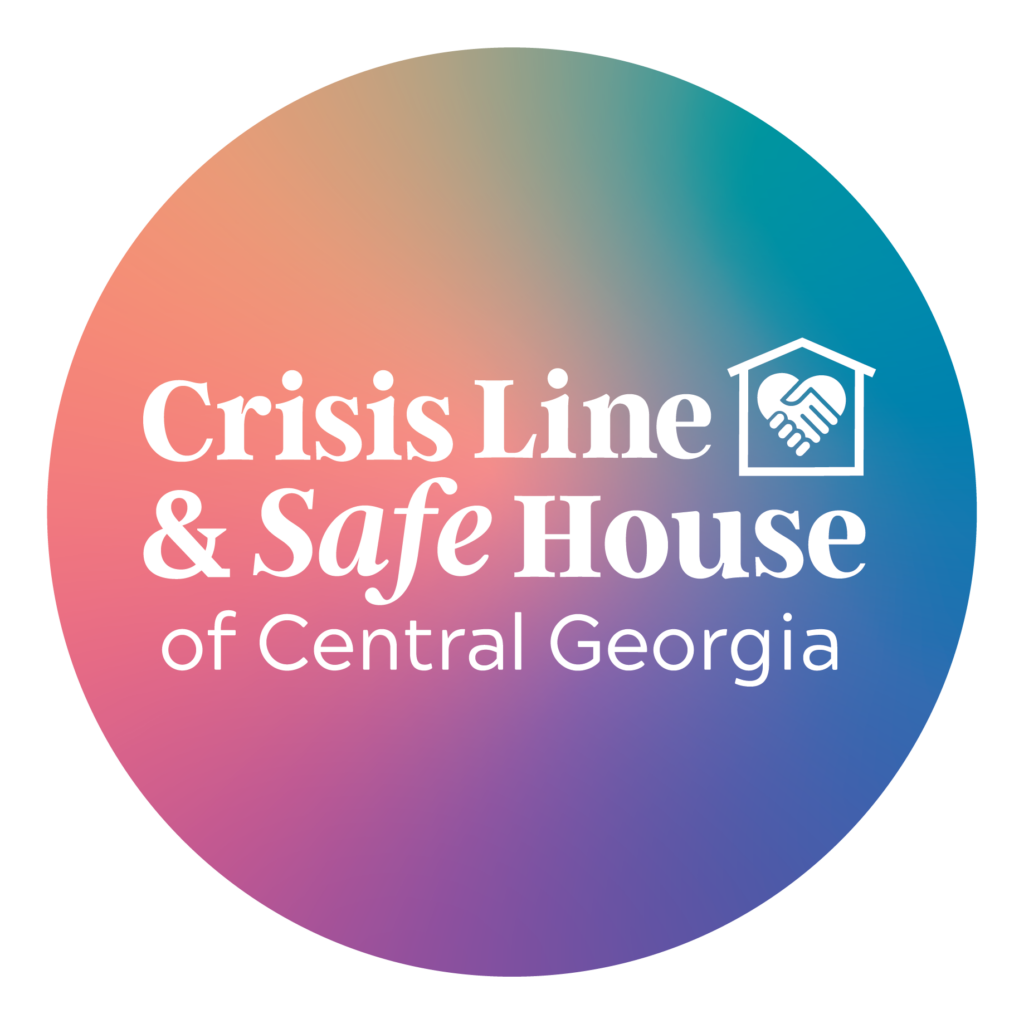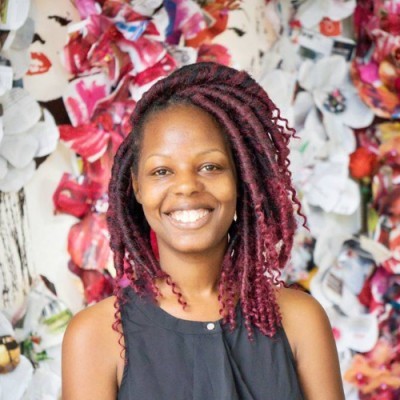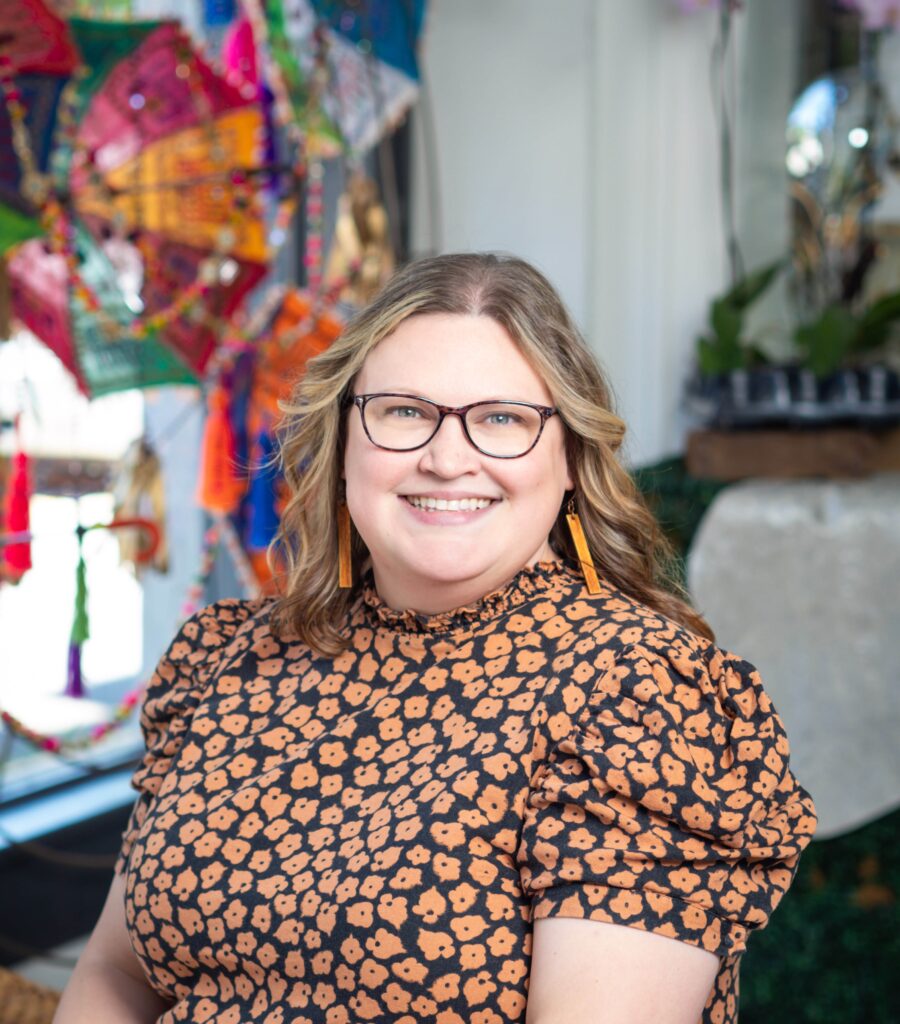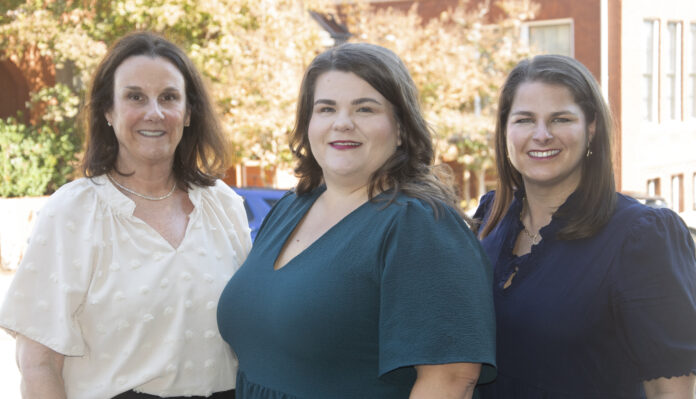For the staff members at Crisis Line & Safe House of Central Georgia, their work is much more than a job — it’s a passion.
With several Mercer University alumnae on staff, the Macon-based nonprofit provides resources, specialized services and support to victims of sexual assault and domestic violence. The work is hard and often heartbreaking, but employees say they press on every day because they know how much it matters.
Crisis Line was established in 1978 and serves seven counties. It offers legal and counseling services, a 24-hour hotline, a shelter, and sexual assault centers in Macon and Warner Robins. In addition, a family justice center called One Safe Place Macon is in the works to bring all necessary victims’ services under one roof.
“You can’t reach your highest potential for well-being when violence is in the picture. Everyone deserves to live a life free of violence. Crisis Line & Safe House works hard 24/7 to make that vision a reality,” said Sarah Schanck, who earned a Bachelor of Business Administration at Mercer in 2006 and is the director of One Safe Place Macon. “When you can impact individuals and families, then change can truly happen in the community. We get to help people lead a safer life. How incredible is that? It is a privilege to serve in that capacity.”
Leading with passion
Crisis Line leaders Dee Simms, Jamie Bormann and Suzanne Walker have seen the organization grow substantially in the 15-plus years they’ve been connected to it.
Simms is a triple Bear who came to Crisis Line with a wealth of experience in prosecution and advocacy. At Mercer, she earned a bachelor’s degree in history and political science in 1983, a master’s degree in education in 1984 and a law degree in 1988. She was a lawyer in the Macon District Attorney’s office, where she developed a unit that focused on prosecuting crimes against children.

She helped develop the Crescent House children’s advocacy center in Macon and was the first director of Georgia’s Office of the Child Advocate. She got involved in Crisis Line in 2008, first as a board member, then as shelter director for a year and a half, and as executive director from 2009 until her retirement this summer.
Bormann, a 2005 sociology graduate, is continuing Simms’s legacy as the new executive director. Walker, a 2007 psychology graduate, is her second in command as the director of programs.
Bormann and Walker’s journeys to Crisis Line began as Mercer students. Bormann interned with Salvation Army Safe House, and Walker did a group project for a women’s and gender studies class at Middle Georgia Crisis Line, followed by an internship. The two organizations merged into Crisis Line & Safe House in 2005, and Bormann secured a full-time position with the organization in 2006 and Walker in 2007. Both women thought Crisis Line would be just a stepping stone in their careers, but they have stayed for the long haul.
“This work is transformational, not only for the people we serve but also for the people that do this work,” Bormann said. “Pretty quickly upon working here for a short time, I realized this is more than just a job. I very quickly grew extremely passionate about it.”
Crisis Line has grown to a staff of 32, and it has expanded its services to address additional community needs along the way, Bormann said. The organization has led initiatives to make sexual assault services in Middle Georgia more victim-centered, Simms said.
“Our perspective of services has changed over the years,” Walker said. “We have tried very diligently to make what the client and the person needs a priority. We were one of the first agencies in the state that made that major shift of being very client-focused and person-driven. We exist to help others.”
The organization strives to provide holistic services where individual decisions are respected, which encourages others to come to Crisis Line when they need help and benefits the criminal justice system, Simms said. When people have an advocate who stands beside them and listens to their wishes, they are often more willing to move forward in prosecuting cases.
Changing perspectives, expanding services
Around 2013, the nonprofit added a rural outreach advocate who travels outside of Bibb County to make services more accessible to those in need, Bormann said. With Victims of Crime Act grant funding in 2018, Crisis Line expanded its sexual assault services to include in-house forensic exams by trained nurses. Before this, victims often had to wait for hours in the emergency room to receive these exams, further adding to their trauma.
“You now have a group of individuals at Crisis Line that understands the importance of the focus being on the victim and beginning that healing immediately,” Simms said “This is about what the people that need us need. I think Crisis Line has done a great job in recognizing that and moving victim services to that next level.”
With Victims of Crime Act grant funds, Crisis Line also opened its own counseling center in 2018, allowing victims to start therapy sooner. Two therapists provide free one-on-one counseling and support groups.

Susan Johansen, who graduated from Mercer in 1994 with a bachelor’s degree in psychology and English, worked with a batterers’ intervention program for 13 years before joining Crisis Line’s counseling team as director seven years ago.
“I felt I was in a position to help survivors understand more about the dynamics of abusive relationships, process their trauma and ultimately work on healing and reclaiming their lives,” Johansen said. “(I love) being able to provide validation to clients who feel so isolated as a result of what they’ve experienced or been going through and seeing them receive the reassurance that they are not alone.”
Also in 2018, the organization opened a full-service legal program and hired two in-house attorneys. As a result, clients can receive free legal assistance related to protective orders, child custody, child support, alimony, divorce, immigration and other issues that may stem from victimization, Bormann said.
Trineice Hill, a 2014 Mercer School of Law graduate, had been helping low-income and vulnerable families through her own law firm and welcomed the opportunity to continue that focus as a Crisis Line staff attorney in 2020.
“Helping people break the control that keeps them in the domestic abuse cycle is super rewarding,” Hill said. “So many clients don’t have access to even talk with an attorney, much less get represented by an attorney.

“My favorite part of the organization are the advocates that provide unending support. They are there to fill in the gaps and be a source of support whatever the clients may need. I don’t know how the community would survive without Crisis Line & Safe House.”
The organization’s latest project is opening a family justice center, which will be one of only a few in the state, Bormann said. Crisis Line was awarded grant funding in 2020 and purchased the old Virgil Powers School building at 1120 Second St. in Macon in May. Renovations are under way on the One Safe Place Macon facility, which will be a “one-stop-shop” for victims’ services and resources. Schanck, who has worked at Crisis Line for four years, said the center should be open in about a year.
“We are co-locating 18 agencies into a 30,000-square-foot building downtown where victims of domestic violence, sexual assault, child abuse, elder and dependent adult abuse, and human trafficking can come to access the support they need in one spot,” said Schanck, who enjoys having the opportunity to leverage her skills and passion for community transformation through her Crisis Line role. “We are very excited about the impact this will have in our community.”
The hope is that One Safe Place Macon will become a model for other communities to follow, Bormann said.
“I think the family justice center with Crisis Line as the lead agency in that initiative is going to be a game-changer in some ways,” Simms said. “Much of what Crisis Line has done has led us up to being an ideal location for a family justice center. It will give victims one place to go to see a multitude of agencies that can provide services to them and will work better together.”










